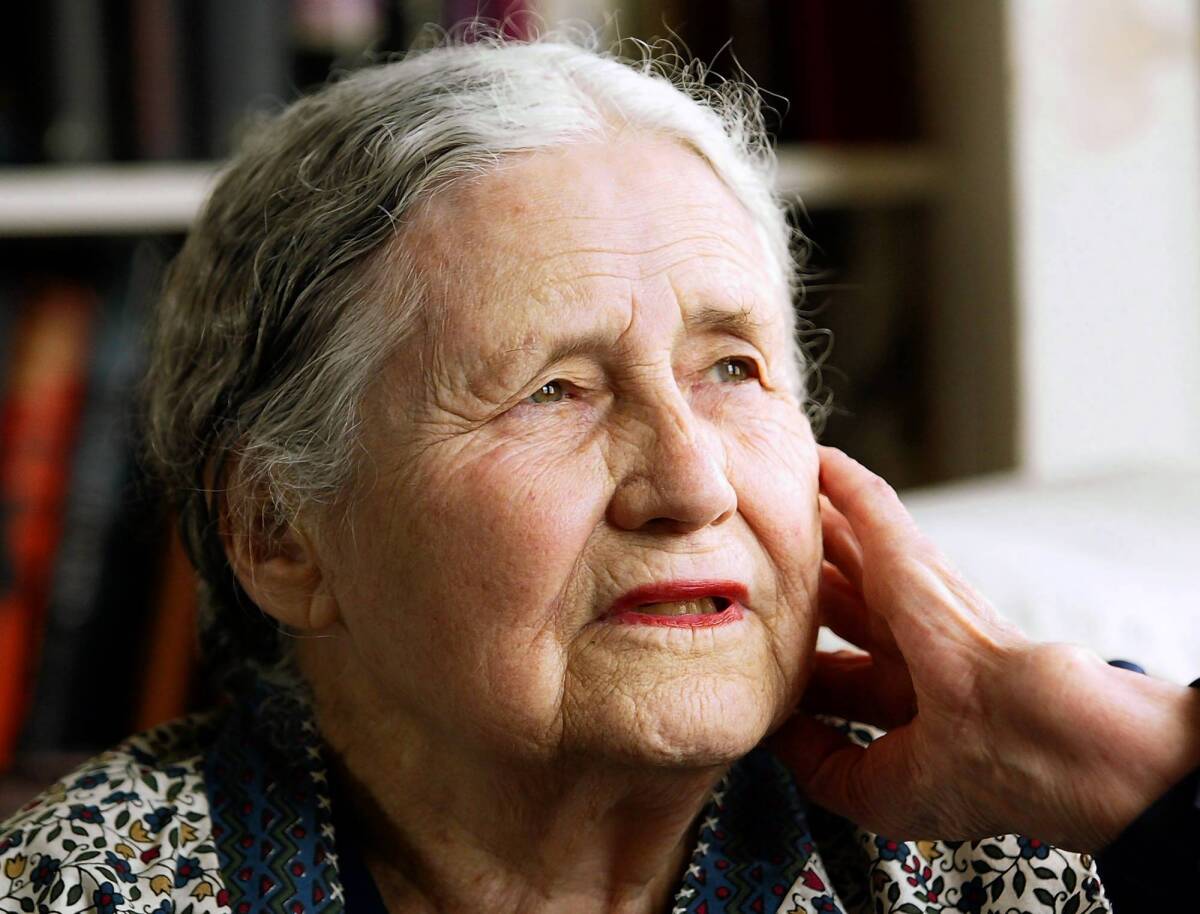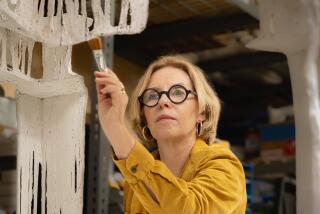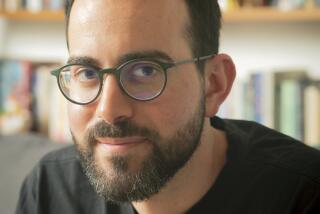Doris Lessing reveled in her status as a contrarian

Doris Lessing, who died at home in London on Sunday at age 94, was a writer who refused to be categorized. Feminist, expatriate, experimentalist, realist, science-fiction writer: She was all of these and more.
Recipient of the 2007 Nobel Prize in literature, she is best known (rightly) for her 1962 novel âThe Golden Notebook,â the story of a fractured woman named Anna Wulf and her efforts to find some sort of integration. Lessing, however, later would see that book as something of an albatross, arguing that the artistry of the novel had been overlooked in favor of its politics.
Lessing was a political writer from the moment her first novel, âThe Grass Is Singing,â appeared in 1950. The book, published after she immigrated to England from colonial Rhodesia â where sheâd been raised â involves a white farmerâs wife who has an affair with a black servant; it was an audacious way to begin a career.
PHOTOS: Notable deaths of 2013
And yet, to consider it now, especially in comparison with âThe Golden Notebookâ or 1971âs âBriefing for a Descent Into Hell,â is to recognize just how traditional her early efforts were. As John Leonard suggested in the New York Review of Books: âAfter the passionate indignation and furious intelligence of the African stories, âThe Grass Is Singingâ (1950), and the first four âChildren of Violenceâ novels, ⌠Lessing stopped playing by the old narrative rules.â
For Lessing, the act of writing was provoked in equal parts by rage and restlessness. She had no use for orthodoxy, of either the cultural or aesthetic kind. âThe Golden Notebookâ may have made her an early feminist icon, but she came to reject that label, lamenting in a 2008 interview that it âbecame the property of the feminists,â when, in fact, her intentions were more broadly political. âI used to tire,â she complained, âof having to explain to young readers in the 1970s what Khrushchevâs speech to the 20th Congress meant to world communism. Thatâs what really gave the book its charge.â
Later, she would turn her back on Marxism, which she once characterized as âthe sweetest dream,â telling the Telegraph that âit was all a load of old socks. It seems incredible now that quite intelligent people believed in it all.â
Of all the orthodoxies, perhaps those for which she had the least use involved literature. In wake of âThe Golden Notebook,â she moved in a more speculative direction, writing novels that adopted certain science-fiction tropes. âThe Four-Gated Cityâ (1969), which concludes her âChildren of Violenceâ cycle, ends in 1997, in the midst of World War III. âThe Memoirs of a Survivorâ (1974) involves a retreat into an alternative universe.
Most notable of these speculative projects was âCanopus in Argos,â a five-volume set of novels, published between 1979 and 1983, that comes framed as the galactic history of the Canopus empire, which seeks to influence the fates of other worlds (Earth included) while wrestling with issues of its own.
PHOTOS: Nobel Prize in Literature
âIt is by now commonplace to say that novelists everywhere are breaking the bonds of the realistic novel because what we all see around us becomes daily wilder, more fantastic, incredible,â Lessing wrote in a preface to the first novel in the series, âShikasta.â Yet more to the point, she cited a much deeper tradition: that of sacred literature, and especially the Old Testament.
âActually,â she told the Paris Review in 1988, âit never crossed my mind with these later books that I was writing science fiction or anything of the kind! It was only when I was criticized for writing science fiction that I realized I was treading on sacred ground.â
What she was saying, of course, is that literature should recognize no boundaries, that the best work moves us by challenging our preconceptions, whether they have to do with content or with form.
As she explains in her Paris Review interview: âIâve met quite a lot of young people â some not so young either, if it comes to that â who say, âIâm very sorry, but Iâve got no time for realism,â and I say, âMy God! But look at what youâre missing! This is prejudice.â But they donât want to know about it. And Iâm always meeting usually middle-aged people who say, âIâm very sorry. I canât read your non-realistic writing.â I think itâs a great pity.â
This, in some ways, could be read as Lessingâs legacy: Donât stand on ceremony, question your beliefs and prejudices and always, always be prepared to change your mind. In her later books, she returned to realism, but even as she became something of a revered figure, she reveled in her status as contrarian.
She was buying groceries when the announcement came that she had won the Nobel; when she returned home and was confronted by reporters, her response to the news was pointed: âOh, Christ.â
At age 88, she was the oldest winner of the prize, and the attention it brought her took its toll. âThe whole thing is a joke,â she grumbled in 2008, the year she published her last book, âAlfred and Emily.â
âThe Nobel Prize is run by a self-perpetuated committee. They vote for themselves and get the worldâs publishing industry to jump to their tune. I know several people who have won, and you donât do anything else for a year but Nobel. They are always coming out with new torments for me. Downstairs there are 500 things I have to sign for them.â
More to Read
Sign up for our Book Club newsletter
Get the latest news, events and more from the Los Angeles Times Book Club, and help us get L.A. reading and talking.
You may occasionally receive promotional content from the Los Angeles Times.









